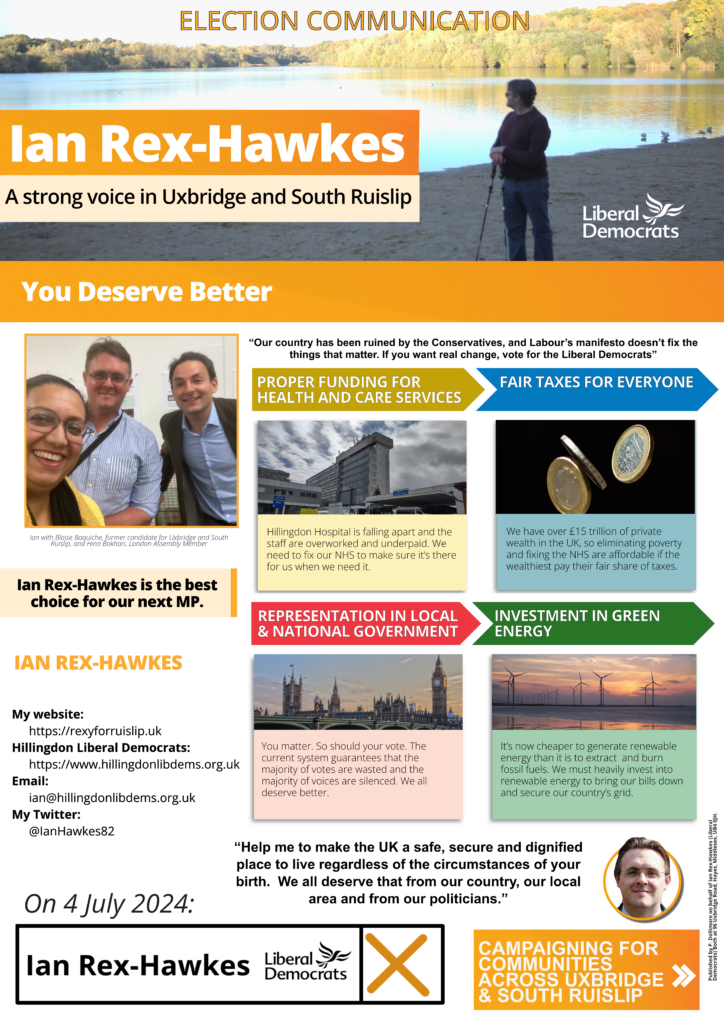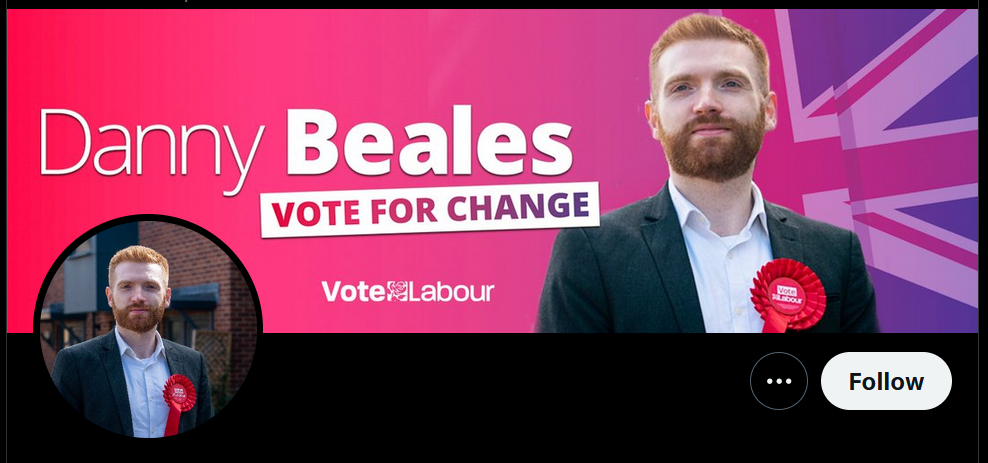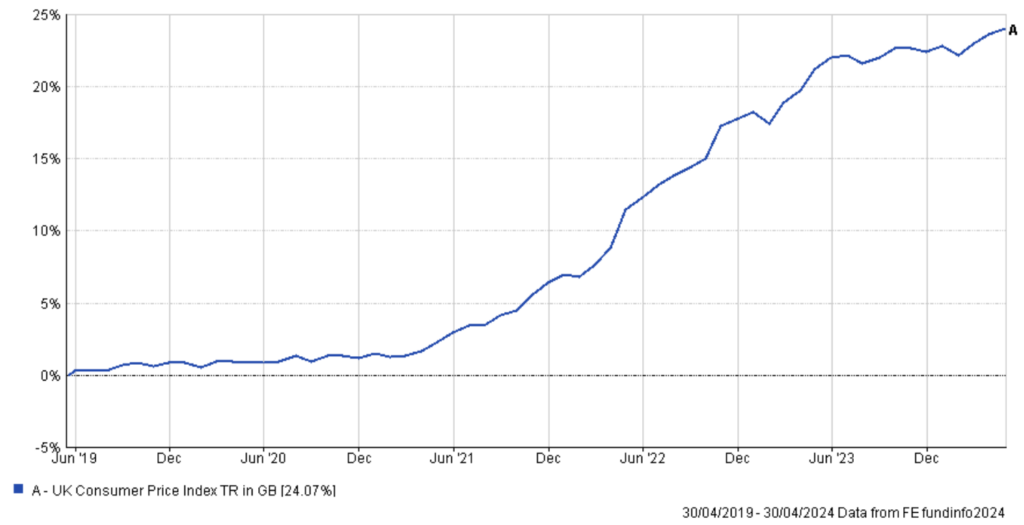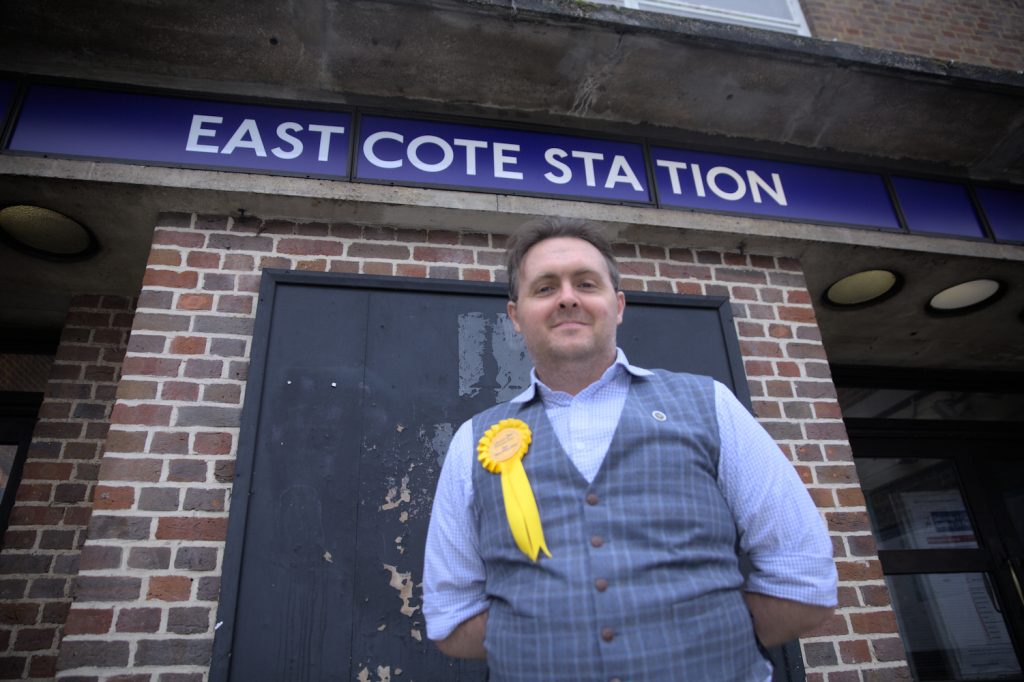About Last Night…

Last night we had the main Uxbridge and South Ruislip hustings, organised once again by the Hillingdon Chamber of Commerce. It was a relatively sparse event, with maybe 80 people in the audience, something of a shame given the size of the constituency but a reflect of how disillusioned people are with politics. I wanted to talk a little bit about last night and what some performances indicated. I don’t intend to spend much time at all on my own performance largely because much of what I said has fled my memory, but the time I got to listen to the other candidates is still fairly clear. So here’s some of what I remember of the Uxbridge and South Ruislip hustings. Steve Tuckwell Those who have read my page before will know that I do not hold Steve Tuckwell in particularly high regard, and yesterday’s performance from him did nothing to change my opinion. He interrupted repeatedly, often completely pointlessly. For example when I said that inflation was 24% over the past 5 years he interrupted to say that it was 2% now – this added absolutely nothing to my point, nor did it contradict anything that I was saying, it’s clearly just a talking point that he has been blindly told to repeat without context. I have a chart demonstrating this (see across). The recent figure of 2% only takes into account the last 12 months, but focusing only on that ignores the huge impact that the years of extreme inflation have caused, and this is a price that all working families will be paying for decades. In short, the figure of 2% might be technically true, but it is highly misleading to try to distract people from the fact that prices have in fact risen by nearly 25% in 5 years. Tuckwell also repeated his claim that Hillingdon Hospital is fully funded. This is a falsehood – whether it is a lie or him failing to understand what most people define “fully funded” to be, I genuinely don’t know. I would like to give him the benefit of the doubt and assume that he is just clueless, but the weight of evidence about just how much he has spread falsehoods on behalf of the Conservatives make me believe that he knows precisely what he is doing. For the avoidance of doubt, the hospital is not fully funded. It has the funding it needs to carry out the establishing works – site clearance, installation of utilities, etc, but the actual build costs have been deferred to the next Parliament or beyond. This means they are not fully funded, because the likelihood is that there will be no Conservative government to hold to account for such promises, so in essence the commitment has been handed to the next government, likely Labour. This is not full funding a projects. This is deferring the problem until someone else fixes it for you. I can predict exactly what this is going to look like, though. Tuckwell is hedging his bets, working on the assumption that he is going to be voted out, and he is starting to lay the groundwork for claims that “the hospital was fully funded when I left, why is it not fully funded now?” The answer is that it is not fully funded. It has never been fully funded. The fully funded status of this hospital is identical to the 40 that were promised by Boris Johnson in 2019, none of which have ever seen the light of day. This is not “fully funded” by any rational definition, because “fully funded” means that the money is in place, and that the works will happen regardless of changes in government. People will eventually start remembering the lies, and I am fairly certain we are near that point in Uxbridge – enough is enough. Interestingly, although he repeatedly commented about being a hard working MP who has put the constituency first, Tuckwell was very reluctant to highlight any of his voting record in Parliament. This was perhaps not too surprising give one audience member had to remind him that he had in fact voted against calling for a ceasefire in Gaza. Aside from that, Tuckwell has also voted to suppress the school safety report that would allow parents to be aware of whether their children’s schools were built using RAAC, a substance now known to be crumbling far faster than anticipated. Definitely not an action in the interests of local people, and something I sincerely hope he is ashamed of. At the Uxbridge and South Ruislip hustings last year, Tuckwell claimed not to be Boris Johnson. I ask you, is this an improvement? Danny Beales Beales once again made it very difficult to say anything negative about him, because he remained calm, answered points rationally and generally came across as very statesmanlike. I will say this, however. An audience member asked him what his views on Proportional Representation are, and he said that he supported them. I pointed out that in that case he was in the wrong party, because Labour’s 1997 manifesto included a commitment to Proportional Representation, which they reneged on, and their 2010 manifesto included a commitment to Alternative Voting (not Proportional Representation, but a step in the right direction). We Liberal Democrats fought hard as a party and secured a national referendum on electoral reform with Labour’s preferred system as the one that would replace the archaic First Past The Post system we currently have, and half of their MPs at the time campaigned with the Tories against the system, meaning the referendum ultimately failed. Labour are absolutely not the party of electoral reform, to the extend that they have kept any promises to reform our broken voting system out of this manifesto, which is arguable the best opportunity we have ever had as a country to push for real, lasting change to our politics. This is a truly sad state of affairs for Labour because
My Campaign Leaflet

As you probably know by now, my campaign is not a particularly well-funded one. We don’t have the backing of wealthy donors with extremely deep pockets, nor are we gifted large amounts of cash by trade unions. So we have to be very frugal with the money we spend on campaigns. To that end, I designed my own campaign leaflet and had planned to make use of the free Royal Mail delivery available to all candidates. I had the artwork signed off by my agent and then Royal Mail, and I was ready to deal with the 47,000 copies that I had ordered. Unfortunately the printer contacted me yesterday to say that they would not be completing my order, so Uxbridge & South Ruislip will not be getting my leaflet. To say I am disappointed is a huge understatement. But I thought that even in the absence of a physical copy, I can at least share the final design with you as a reader of my website. So here you are, in all its glory:
Even More Economic Ineptitude

This would be a much less wasteful thing to do with money than what Reform UK have in mind. Reform UK are on the move, but unfortunately it’s just another example of them wanting to play at politics without any real understanding of what they are doing. I am referring to this “manifesto” which has surfaced in recent days on Twitter. This particular image was shares by a self-declared stand-up comedian, but most of his recent political posts seem to be serious (or at least that looks like it was the intention). The image in question is this one: Let’s go through claim by claim to see what makes sense, what doesn’t (most of it) and what is just so wrong it isn’t even in the right ballpark. Authenticity First of all, this is not an authentic manifesto. During an election campaign, all materials published by a party are required to have an imprint on to show who has been responsible for making the claims. This document lacks any such imprint, meaning it has the same impact as parody. Nevertheless, several Reform UK candidates seem to be treating this as though it is real, so I will do the same. Importantly, though, if this is official party policy, they have messed up by not including an imprint. Notwithstanding this crucial omission, I suspect that this is actually a sanctioned document by Reform UK. I assume the missing imprint is deliberate to allow them plausible deniability if they actually get success, essentially giving them a “Get Out Of Promises Free” card. So if you are reading this document and thinking “I like that a political party is promising these things” remember that they aren’t. They are taking you for a fool, and they deserve your contempt for that and numerous other offences. Increased Personal Allowance Nothing wrong with this headline figure as a concept except to say why £20,000 is their chosen figure (minor gripe) and how they intend to pay for it (major problem, as this would cost a huge amount of tax revenue). My back of envelope calculations suggest this on its own could cost upwards of £200 billion a year, on its own dwarfing the total cost of the whole manifesto stated as £141 billion. Scrap VAT on Fuel Bills and Lower Fuel Duty This seems like a reasonable solution until you realise that the reason why fuel bills are so high is because the free market allows energy companies to charge a high price for their product. Scrapping VAT on energy bills would have a short term benefit, but market forces would react to the reduction in price by nudging prices higher. In a few short years we would likely be back to the same issue again, but this time we would all be paying high energy prices and there would be no tax revenue to compensate us. Worst of both worlds. The right solution is to either price regulate, nationalise the energy companies or introduce a competing publicly-owned supplier that can directly affect the prices offered by the remaining private sector companies. Reduce Corporation Tax to 20% No indication why reducing corporation tax would be a good idea, though it is of course interesting to note that Reform UK Ltd – a corporation – would directly benefit from such a tax reduction. In reality, small companies rarely pay anywhere close to the 25% rate due to the number of allowances and reliefs they have available, and any income they generate which is paid out as salary is already an allowable expense. Corporations do not need a lower rate of tax except to directly benefit their shareholders, not their employees. Freeze Non-Essential Immigration This is another costly measure that will likely cause us more problems than it solves, but even if successful, the question has to be raised of “who decides what is non-essential?” At the moment, it would wholly be Nigel Farage, as he seems to be the sole decision-maker for Reform UK, and frankly I wouldn’t want him making any such decisions on behalf of the country. Immediate Deportation for Foreign Criminals This might as well be renamed “Catch and Release”. If we arrest someone in the UK and sentence them to a jail term, then deporting them back to their parent country is just setting them free instead of jailing them because they have not been sentenced to jail in that jurisdiction. People would be free to come to the UK to commit whatever crimes they wanted, safe in the knowledge that if caught they would just be sent home again. I can’t even begin to state what a terrible idea this would be for justice. This is one of those policies designed to sound like it would save money, but in reality all it would do is create a two-tier justice system where ironically the foreign criminals would have far better treatment than native British criminals. New Housing Again, no issue with this in principle as we need more housing. But again, it’s a good idea, but with no costings or even quantified goals. Life Skills in Schools and Scrap Student Loan Interest Sensible policies, but again no indication of who would get to pick the life skills being taught. As such, the default is Nigel Farage getting to decide on curriculum content, which frankly should terrify anyone even if they actually like him – one man absolutely should not have that much power. In terms of scrapping student loan interest, it’s a start, I suppose. But the lost interest has to be paid for from somewhere, and there’s no indication of where this will come from. Farming There’s talk here about increasing the farming budget, but not what would be done with it, increasing our food production without any sort of acknowledgement that we don’t grow all our own food because we actually like the food that we import, and subsidised agricultural apprenticeships. Nothing wrong with this last one necessarily, but
Danny Beales – Labour

Returning to Uxbridge & South Ruislip once more and again hoping to be your next MP is Danny Beales. Beales stood in the by-election last year, which I have already said was one of the biggest open goals for Labour in history, given the previous MP had resigned in disgrace, the Conservative candidate – Steve Tuckwell – was monumentally unsuited to the role and lying repeatedly about what he would do as MP, and the Conservatives were at a historically low level of support. Nevertheless, he contrived to lose the ballot marginally. I would argue that skipping most of the hustings events probably didn’t do him any favours, as that showed a contempt for the electorate that really didn’t sit well with people. Nor did starting out pro-ULEZ in full support of Sadiq Khan then changing to anti-ULEZ when Tuckwell weaponised ULEZ as a campaigning tool. Generally I thought he was a very good speaker and would have been a good statesman, but his political stances were clearly poorly thought out and he simply wasn’t committed to the electoral process. Will definitely be interesting to see whether this changes in the General Election campaign. It is worth mentioning that Beales has been very unfairly lambasted by the Tories as “not local” (as have I, incidentally, which is absurd as I live about 3 minutes from the constituency border). To my mind this is not a fair criticism. Beales was born and raised in Hillingdon, and his work has taken him across London to Camden, but he is clearly still a local to the area. This is clearly a desperate ploy by the Tories to denigrate other candidates in the area purely based on their post code rather than a) whether they know and love Hillingdon and b) whether they would do a good job for the area. It is also worth remembering that their former MP, Boris Johnson, famously spent almost no time in Uxbridge to the point where it was joked that he didn’t even know where Uxbridge was. Labour’s Policies It is worth remembering that Beales is a Labour candidate. That means that he is inextricably linked to the Labour leadership. That means that a vote for him is a vote to: Keep most things exactly as they are. Labour has been very clear that they are not offering any radical changes to anything and will keep most of what the Tories have brought in, including the restrictions on the rights to protest and strike, both of which are fundamental to a society which values the people who make up the country. Retain the existing First Past The Post election system which guarantees that most votes are wasted and does not allow true representation in Parliament. Continue demonising the people who most need the benefits system, e.g. disabled individuals. Leave the tax system largely unchanged, allowing the ultra wealthy to continue paying a tiny fraction of what the average family pays as a marginal rate. Allow continued exploitation of the UK’s oil and gas reserves despite very clear evidence that renewable energy is cheaper. There are plenty of other complaints about the Labour Party, but my summary of them is that they have very deliberately set themselves up as a caretaker government while the Tories are out of power. They are not bringing anything radical or even necessary to the table, but instead are fishing for right-wing votes that would normally go to the Conservatives. Frankly if you want change, Labour is not the party for you. If you look at the chaos and suffering of the last 14 years and think “more of that, please” then maybe, though honestly I would argue that you are probably better suited to the Conservatives or even Reform if that’s the case. In short, Labour are not what the UK needs. We will almost certainly get a Labour government next if we look at the polls, but if you want to vote for the good of the country and not just vote for the winning party, you will need to look elsewhere. Such as:
What Uxbridge and the UK Needs

Hopefully this image says it all. Uxbridge and the UK as a whole needs me, or at the very least people like me. People who care, people with integrity and people who want to make the country better for all of us. Let’s have a look at some of the things that I want to achieve. Fairer Elections Right now, elections are essentially designed to be unfair. I wrote a blog post recently explaining how the current system almost guarantees that at least half of votes are wasted, and usually considerably more than that. In an ideal world, every vote should matter. After all, we have 650 seats in the Commons, which means that each MP should represent around 0.15% of the current population. That’s a lot of potential for nuance, but right now such nuance is not just discourages but outright impossible. In fact, this inability to allow nuance is precisely why the Conservative party has become so dominated by a radical right-wing element that very few people in the country actually support. The Liberal Democrats are the largest party in England that supports Proportional Representation. This is a fundamental change to our electoral system to make your votes count and to introduce nuance into our political system that currently cannot get in. Fairer Taxes Right now the tax take for the UK is the highest is has ever been, but many ultra wealthy individuals have managed to get away with paying very little tax, often across multiple generations. This comes from a very long-standing tradition for the political right that wealth trickles down, so looking after the wealthy indirectly looks after everyone else. Trickle down economics has never worked anywhere except to keep the rich rich and the poor poor. For society to improve, we need to make sure that everyone pays their fair share of tax and that the burden for paying tax doesn’t hit the poorest in society the most. Fairer Healthcare At the moment, if you can get a GP appointment via the NHS, you are very lucky. If you can get an appointment with an NHS dentist, you are beyond lucky. When the NHS was founded, the stated intention was to provide healthcare from the cradle to the grave without any up front costs. Nothing about that indicated having to wait weeks just to see a doctor, months to see a specialist or years to get life-improving but technically non-urgent treatment. But that’s the reality we now face. Our healthcare service has been persistently decimated in terms of staff and required funding, and frankly we all deserve better. In particular, we in Hillingdon deserve a world-class hospital rather than one that is falling apart. Our current hospital has plans to renovate which have been approved, but approval absolutely is not enough, especially since the country was promised 40 new hospitals and has so far received none. Fairer Environment Regardless of our socio-economic status, we all use the environment one away or another. We all breath the air and drink the water, so it is horrible to see the forces of unchecked capitalism taking a stand against environmental protection. It has become normal for water companies to simply dump raw sewage into our waterways almost whenever they feel like it, and they have a track record of awarding their directors huge bonuses and their shareholders huge dividends whilst doing so. At the other end of the spectrum, these same forces have turned large parts of the legislature against things like clean power generation, despite the fact that right now renewable energy is by far the cheapest form of electricity generation available and we live in one of the most reliably windy places on Earth. We all deserve laws that are designed to protect the precious environment and preserve it for our children and successive generations. Instead we are embarking on a huge expansion of fossil fuel extractions which is both needlessly expensive and highly polluting. And of course we are allowing water companies to pump sewage into our rivers. Fairer Everything You’ll see that there’s a theme for what Uxbbridge and the UK needs, and that’s a fairer deal. I could go on at length about what we need, but I honestly can’t do much better than suggesting that you read the Liberal Democrat position. We stand “For A Fair Deal” for a really good reason – it’s what the whole country is crying out for. We aren’t looking at improving things only in the short term until the Conservatives get back into power. Instead we want to make meaningful long-lasting changes that make the UK a fairer, kinder, better society for everyone. So what does Uxbridge and the UK need? People like me in Parliament. So I reiterate, on 4 July, cast your vote for me:
It’s On (Part 2)

General Election scheduled for 4 July 2024
Did Your Vote Matter?

I gave a speech this week on Proportional Representation for Make Votes Matter, and it got me thinking about whether your vote mattered in the last election. I suspect that the chances are that it didn’t no matter where you are, who you voted for and who won purely because of how the odds work. So, here are just a few of the ways that your vote was wasted. Your Candidate Didn’t Win Under the current system, if you make the cardinal sin of voting for a candidate that doesn’t win, that vote is wasted by design. Your candidate doesn’t get any political power as a result of coming second or third in the ballot, so a vote for a candidate that doesn’t win is essentially thrown in the bin. This discourages you from voting for a candidate that you don’t think can outright win, thereby shoring up the de facto two-party system that we have been dealing with for centuries. Your Candidate Won Comfortably Congratulations! But did your vote matter? Arguably this is the case that most people probably assume makes their vote matter, but I would argue that it’s not quite that straightforward. Imagine a two-candidate race where the winner gets 80% of the votes and the loser gets 20%. In this case, it is obvious that the 20% of votes for the loser were all wasted, but what about the 80%? In this case, the winner actually only needed one more vote than 20%, which for all intents and purposes is the same as 20% for a large enough ballot. once that total is achieved, all further votes for the winner are also wasted – a candidate doesn’t become more of a winner if they win by 80% or 0.8% of the electorate. This means that in this example, three-quarters of the votes for the winner are also wasted, meaning that if you cast a vote for the eventual winner, you only had a one in four chance of it actually mattering. Your Candidate Narrowly Won In this case, your vote likely had the most impact. If the example above actually had the winner with 40% of the vote and the runner up with fewer votes but still rounding to 40%, that means that every vote for the eventual winner was important. Conversely, all other votes were essentially ignored by the system, so even in this example of a very narrow margin of victory 60% of the electorate’s votes would be ignored by design. A Real Example Looking at the 2023 by election in Uxbridge and South Ruislip, the results were as follows: At first glance, this might look like it was only worth voting for Steve Tuckwell, but this is essentially what the system is deigned to do – to make it feel like only voting for the winner matters. But it is important to remember that this seat came very close indeed to flipping to Labour, which would have meant that votes for Steve Tuckwell were wasted and a proportion of votes for Danny Beales were the only ones that mattered, at least from the perspective of deciding an MP. Even more importantly, this vote was almost as close as it is possible to get, and it still meant that only 44% of votes cast actually mattered. By design, at least 50% of the electorate is disenfranchised using the First Past The Post system, which is horrible for democracy. What About Short Money? Short Money is the consolidation prize for voting for a party where the candidate didn’t win in your area. Assuming the party returns at least one MP nationally, Short Money is awarded to them in proportion to the number of votes they received in all elections across the country, and it is designed to help the MPs to pay for things like research that the government has access to as a matter of course. In essence, it is designed to allow parties that don’t form a government to at least have a fighting chance at representing their constituents, even if the government shuts them out of all major decisions. This means that even a wasted vote for electing an MP is useful to the party that candidate stood for, as long as the party managed to win at least one seat in all 650 constituencies. It’s not perfect, but it means that you can still vote for the party that you prefer even if they have no chance in your area.
What do Liberal Democrats Stand For?

A regular question asked is “What Do X Political Party stand for”. For most parties, this can be summed up in a single phrase, but it can be more difficult for the Liberal Democrats. So this article is about what the main political parties stand for. Conservatives What they stand for: rich people. I’m not going to sugarcoat this, the current Tories are all about looking after the wealthy in society, hence they make tax cuts that affect the rich far more than the poor and cut the services that the poor rely on. It’s fair to say that the Conservatives simply do not care about you if you don’t have a Coutts bank account or make large donations to their party. Labour What they stand for: ostensibly they are focused on helping the working class. In reality, their current stance is almost entirely a continuation of the current government. They support staying out of the EU, they have not proposed any sort of tax reform to specifically target the rich other than closing the non-domiciled loophole, and they have refused to back democracy by supporting the Proportional Representation demanded by their own party. In short, Labour really are not demonstrating that they care about anything other than getting into power. Reform What they stand for: think “Britain First”. This is a party for those who look at the Conservatives and think “nope, not fascist enough”. Frankly I am astonished that they are as popular as they are, as they have shown that they only really care about white British people and want to pursue very much an isolationist strategy for trade and international relations. A Reform government would likely ruin our international standing for years. I honestly do not know who they care about, because all of their policies seem to be largely based on hatred of “other” groups. Green What they stand for: the Greens put the environment first, with all of their other policies deriving from the idea that the country needs to still exist in 100 years or so. The Greens are advocates of Proportional Representation and rejoining the EU, so in many ways are natural allies of the Liberal Democrats. Unfortunately they are a very small party indeed, with only a single MP at present, who is due to step down at the next election. As such, anyone voting for them might want to consider whether their vote would be better placed with the Liberal Democrats. Liberal Democrats Saving the best until last, the Liberal Democrats essentially stand for fairness as a broad concept. This is best exemplified by the drive to make votes match power share in parliament, bringing proper democracy to the UK for the first time. As a party we are wholly committed to peace, with all of our MPs voting to make statements that we in the UK wanted a ceasefire in Gaza, something opposed by the Conservatives and largely abstained on by Labour. Our love of fairness extends to both the NHS and carers, and we believe firmly in a “cradle to grave” health service, which means that all medical staff need to be comfortable with their remuneration and benefits, and that our NHS buildings, such as Hillingdon Hospital, are properly renovated and modernised. We also firmly believe in education. It is unconscienable that we cut the education budget year after year, and we believe that both schools and universities should be available free of charge at the point of service. Finally, the elephant in the room, we believe that we must urgently rebuild our relationship with Europe. This doesn’t necessarily mean that we ought to rejoin immediately (though that would be my preference!), but it does mean that we need to step back from the highly adversarial position we have taken with our European members. Overall, what do we stand for? the answer is so much, but it all falls into the category of “fairness”.
Leopards Changing Spots?

It is a fairly common maxim that a leopard never changes its spots, meaning that the very nature of a leopard is such that it will always look the same. A little closer to home, in the finance business we tend to cite that someone is statistically more likely to get divorced than change their bank account. In the interest of assessing the likelihood of certain things happening, I was wondering to myself “how often do constituencies change party hands?” Snow leopard – also not known for changing their spots. The answer to this was not easy to find. There are records of elections on the Office for National Statistics website spanning back to 1918, but oddly enough there didn’t seem to be a dataset focusing on changes in party affiliation. The data is definitely out there, but it doesn’t seem to be easily accessible. I decided therefore to do some legwork myself to answer that question. Methodology I started with a raw document outlining the votes received in each constituency between 1918 and today. From this, I applied a lookup function which matched the largest proportion to the column header for that party, which allowed me to easy work out the winning party for each constituency. I then used ChatGPT to produce a list of constituency creation dates. I have checked some of these, but not all, so this is a definite area of uncertainty. The final step was to create another lookup function to check the winner in an election year and identify whether the winner was different in a previous year. Due to the difficulty of including by-elections, this table only looks at the results during a General Election, so if party A was replaced by party B in a by-election, but then by party A again at the next General Election, this data would assume continuous loyalty to party A. The Data – “How Often do Constituencies Change Party Hands?” After analysing the data, I came up with the following table of results, so here’s the answer to the question “how often do constituencies change party hands?”: Importantly, this data shows that of the 650 current constituencies, 295 (45.38%) have either never changed party hands or have not changed hands since 1918. How might we fix this? With my favourite proposal – Proportional Representation.
Uxbridge & South Ruislip: Your New MP

Well, the people have spoken. 46% anyway (where were you, 54% – let me know on Twitter). And you have selected as your next MP Steve Tuckwell of the Conservatives. I thought it would be useful to document some of the things he promised and did as part of this campaign. Hustings Remember the hustings on 13 July 2023? Steve Tuckwell doesn’t, because he didn’t go. Didn’t send a proxy, didn’t turn up late, just didn’t go. The next day his team started showing recordings of the council meeting that he attended instead, and frankly it seems like a very poor excuse for missing a fundamental part of the democratic process. Frankly Steve Tuckwell is either afraid of the electorate or holds them in contempt. ULEZ The core of Steve Tuckwell’s campaign was opposition to London’s Ultra-Low Emissions Zone expansion into Hillingdon. Clearly it makes sense to listen to local issues when campaigning, but Tuckwell deliberately ignored several key points: The MP for Uxbridge & South Ruislip has absolutely no power over ULEZ. This is a devolved Greater London Authority power, therefore it sits with the Mayor’s office, not parliament. ULEZ was first rolled out by Boris Johnson while Mayor. For those that don’t recall, Johnson was a Conservative. Hillingdon was included in a letter that Grant Shapps sent to Sadiq Khan requiring the expansion of ULEZ. Grant Shapps was at the time a Conservative Transport Minister. In short, this entire promise was a lie built on a foundation of lies. Steve Tuckwell has done the political equivalent of promising voters a unicorn each, and he will have as much success delivering the herd of unicorns he now owes. Importantly, the Conservatives might apply pressure on Sadiq Khan to slow or mitigate the expansion of ULEZ. It is vital to remember that anything they do at this point is something they could have done with or without Steve Tuckwell as an MP. This was a truly disgraceful campaign, and I hope that voters remember these promises and omissions when Tuckwell campaigns to keep his seat at the general election, whenever that is. Uxbridge Police Station Throughout this election, Tuckwell claimed that Sadiq Khan was closing Uxbridge Police Station. This of course glosses over the fact that the partial closure of the station was down to – you guessed it – Boris Johnson, the serial liar and regular absentee from Uxbridge. Not as an MP, but as Mayor. Which, like the ULEZ issue above, is where the powers for policing lie, not with the local MP. As such, this is another example of Tuckwell making promises that he does not have the power to deliver. Hillingdon Hospital A recurring theme through the campaign was the state of Hillingdon Hospital, famously referred to as a monstrosity by Wes Streeting, Shadow Health Secretary. The issue here is not the staff – though the Conservatives are responsible for the repeated strike action – but the building itself. In short, it is dilapidated and needs a very significant investment to modernise the building and upgrade the services that the wonderful staff have to help us with our health needs. Sadly, no mention was made of the fact that the former MP – one Boris Johnson – supposedly secured funding several years ago for much-needed upgrades. Ground has not been broken, contracts have not been agreed, funding has not been released. In short, the Conservatives have absolutely no progress to show after 13 years in government. Given this, it was depressing to see Tuckwell running on the promise to help the hospital, as Conservatives have had ample opportunity to help the NHS in the last 13 years, and have failed to do so at every turn. Conclusion It feels very early to be making a prediction for what pledges a politician will keep and which they will break. In this case, though, I am confident that I can predict which promises will be kept – none of them – and which will be broken – all of them. This is down to the fact that Tuckwell’s main priorities of ULEZ and Uxbridge Police Station are entirely outside his control. His other priority of getting an investment for Hillingdon Hospital is, I suspect, doomed to failure based on how the Conservatives have treated the NHS to date.